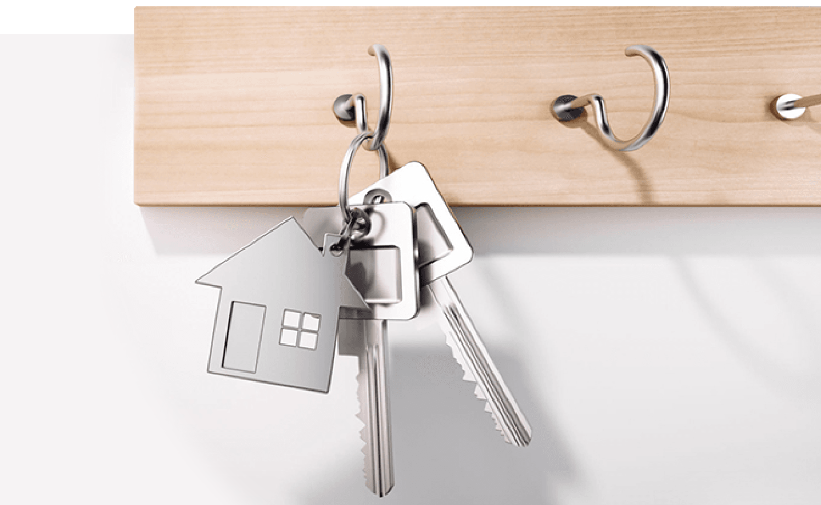Selling a house often goes hand in hand with buying a new property, so can feel more complex than when you were a first-time buyer. There’s a lot to do, and it is easy to get caught up in the emotion of it all, but with an experienced estate agent like Goodchild beside you, it will go as smoothly as possible.
Here is our quick guide to selling your house, suitable as a crash course if you have not done it before, or a handy reminder if you have previously sold a house.
1. Assess your current finances
It’s important to make sure your financial reality matches your property ambitions before embarking on selling your house. There is a lot of work to do, and you do not want it to be in vain.
Understand your current mortgage term and terms, whether you would need to borrow more and your monthly income and expenditure.
Don’t forget all the other costs that go with a house move including solicitor, estate agent and mortgage fees as well as stamp duty. It is helpful to begin talking with a good mortgage adviser even at this stage.
2. Show your house in the best light
With your finances in order, it’s time to get your property looking the part. You want it to attract its highest potential asking price without ploughing lots of additional money into it that you won’t see back.
At a superficial level, clean, tidy and declutter. Don’t forget the outside, like your garden or driveway. First impressions always count! Make sure your property is clean, tidy and free from clutter. This will give potential buyers a blank canvas to imagine how they would use the space.
With the basics done, it’s time to talk to an estate agent for a valuation, who can also advise on any further remedial work worth doing.
3. Getting a valuation
A quick look at Rightmove or Zoopla will give you a rough idea of what your house may be worth, but asking an estate agent for their professional opinion is essential to ensure you price it accurately.
If you price it too high you will limit the offers you may receive; whilst if it is too low, you may get a quick sale but will have missed out on all you could have received, impacting your future finances and the home you may go on to purchase.
At Goodchild, we have a quarter of a century of experience which has honed our valuation skills, and our consideration of how we could market the property.
4. Settle on your asking price
Ultimately, it is your home and your decision how much you are willing to sell it for. An estate agent can only provide advice.
If you have asked more than one estate agent for a valuation and they all come back with a similar figure, it should give you a high degree of confidence in that asking price.
If, on the other hand, the valuations are significantly different you may have more of a decision on your hands.
Are high valuations genuine, or could an estate agent be looking to win your business with an overly attractive valuation that in the end will not be achieved? Or could the opposite be true, and they think they can make a quick sale at a lower price (and your cost!)?
At Goodchild, we will always advise you honestly, with your best outcome in mind.
5. Instruct an estate agent
Estate agents are not the only means of selling a home nowadays, but a good agent will add value to the process for you. You’ll normally pay no fees until the property sells.
Be sure to compare fees and shop around for the best deal – you should consider the various fees, but also scrutinise any tie-in or notice periods. Also, it is vital to consider the experience and level of service of the agent, which may make a key difference in the experience of selling and the price you achieve.
When you’ve settled on the best option, you’ll need to sign a contract outlining the terms under which the estate agent will sell your property – this procedure is known as ‘instructing’.
6. Preparing marketing assets
Now that you’ve instructed an estate agent to proceed, they will likely assign a professional photographer to take pictures of your property for marketing purposes.
Ensure that your home is tidy and well presented – you may want to move furniture or other items between rooms as the photographer goes about their work. Consider small details that can make all the difference to how your property will look in the photos: bathrooms should be clean, beds and sofas neatly arranged, and keep any decorative embellishments simple: e.g., flowers or fruit bowls. Neutral but fresh colour schemes tend to be most appealing to prospective buyers.
The estate agent will create a floorplan, accompanied by a description of the property, for the listing. It’s advisable to ask to see this before it’s published, so you have the opportunity to flag anything that may be missing or misleading.
When all the marketing materials are in place, your estate agent will list your home online. Rightmove is currently the most popular property site so ensure it’s listed there, as well as your estate agent’s own website and various other websites (Zoopla and OnTheMarket also receive a substantial amount of traffic).
7. Viewings
If you’re selling through a high street agent, they’ll likely offer to conduct viewings on your behalf. This is a valuable service as they’ll know how best to showcase your home, and prospective buyers often feel more comfortable asking questions and exploring the property thoroughly alongside an agent rather than the current owner. It’s best for you to be absent during viewings.
8. Engage a conveyancer or solicitor
Conveyancing is the legal process of transferring ownership of a property from one party to another. It may not be the most enjoyable part of the process, but it’s nevertheless crucial to appoint a trusted solicitor or licensed conveyancer to oversee this procedure.
Having one in place before accepting an offer will make this part of the process more expedient and also makes it clear to any prospective buyer that you’re prepared to sell quickly.
9. Be prepared to reassess your choices if your home isn’t selling
If you find that your property remains on the market and you aren’t received the number of offers you’re expecting, liaise with the estate agent and ask them what you could do differently to make your home more appealing to buyers.
Ultimately, you might need to lower the price, but the solution could be as simple as choosing alternative images for the online listing, or considering taking your home off the market temporarily until market conditions begin to improve.
Alternatively, you may want to switch to a different estate agent altogether – most estate agent contracts include a set notice period, so be prepared to act swiftly if your arrangement isn’t working out; it’s best not to leave your home to languish on the market for more than a few weeks. At Goodchild, we help lots of people successfully sell their property after they have been unsuccessful with a previous agent.
10. Receiving offers
Any good estate agent will be quick to inform you as soon as any offers are made.
If multiple offers are received, ask your estate agent to find out more detail around each of the bidder’s circumstances. There are various factors to consider aside from how much each bidder is willing to offer at the outset.
For example, are they part of a chain or first time buyers? Are they looking to move house around the same time that you are? Ultimately: which bidder seems like the most reliable and well placed?
11. Decide whether you will accept an offer – or attempt to negotiate
If your prospective buyer offers less than the asking price you’ll need to assess whether it’s worth negotiating or accepting their first offer for the sake of expediency.
If you choose to negotiate, you can either refuse an offer and hope they’ll increase it or suggest a price that meets them halfway.
These negotiations can seem delicate but they’re quite commonplace. Be realistic about how much your home is really worth in the current climate, but don’t reflexively accept any offer that comes your way (it’s often the case that a buyer is starting “low” but is prepared to pay more). There are lots of considerations, not least is the amount they’re offering sufficient for you to be able to afford the home you want to buy yourself.
You may also consider if the offer fair? Has a bidder made a low offer due to the need for structural work? What are the circumstances of the buyer’s current situation? How quickly do you want, or need, to sell? How long has your home been on the market?
It’s also worth asking what your estate agent thinks – their own fee is likely based on a percentage of the ultimate selling price, so it’s also in their interest that your home sells for the highest feasible sum. That said, they’re also unlikely to encourage you to wait too long for the highest bidder to appear. It’s in both your interests that your property is sold swiftly but at a fair and satisfactory price for all parties concerned.
12. Begin house-hunting
While it’s certainly worth registering your interest with estate agents and browsing various property websites before accepting a prospective offer on your own home, it’s probably best to begin the work of finding your new home once your property is “under offer” (SSTC).
That way, you’ll be much better placed to look for your new home. This is especially true if you fall in love with a property that’s already attracting substantial interest from other buyers – and some estate agents will be reluctant to even show you properties before your current home is subject to a formal offer.
13. Keep up the momentum
Transparency is key. Ensure that any prospective buyer knows exactly what’s included in the asking price – from white goods to furniture and any other fixtures or fittings.
Stipulate provisional but realistic dates for both exchange and completion early on – this will help avoid any confusion or miscommunication further along the selling process.
You may want to consider drawing up an informal agreement with the buyer of your home. Although this will not be tantamount to a legally binding document, it can help to clarify the situation, ensure both parties are on the same page, and potentially diminish the likelihood of the buyer pulling out unexpectedly.
Keep on top of all communications throughout this phase of the process. For example, if you’re planning on being away for a period of time, ensure that everyone involved is aware of this – including your conveyancer and estate agent (who can liaise with the buyer in your absence).
If the buyer goes quiet or becomes less communicative, be proactive and contact them through your estate agent to ask for an update.
If you feel unsure about any aspect of the sale of your home, ask your conveyancer for clarification – after all, it’s part of their job to keep you informed.
14. Exchange and completion
The exchange of contracts is the penultimate step in the process of selling your home – once you’ve reached this stage, the buyer will pay the deposit and the arrangement becomes legally binding.
If you’re buying a new home yourself, be sure to have buildings insurance in place from this date.
Completion is the final stage of selling your property – this can occur on the same day as the exchange but often it’s shortly afterwards. Your home has now been sold and belongs to the buyer.
It’s now time for you to move all your belongings – whether that’s into storage or your new home – and prepare the property for the buyer to move in. Hand over the keys to your estate agent so they can be collected by the buyer.
If possible, try to align the date of completion with the date that you’ll have access to your own new home (if applicable). That way, you’ll avoid having to use storage services which can be costly and inconvenient.





